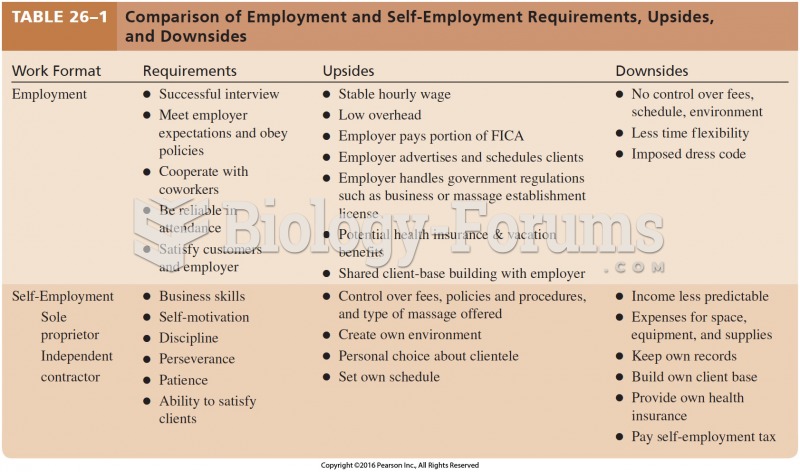Answer to Question 1The burden of proof lies upon those who wish to defend the morality of employment-at-will. The arguments typically used to support this doctrine are not successful. An employer has the right to terminate for just cause or if her decision can be justified in terms of considerations of responsible business and personnel policy. An employer does not, however, have the right to dismiss an employee arbitrarily.
- Since we as citizens value fair treatment and due process it is reasonable to think these rights should extend to the workplace. Any denial that these rights extend to the workplace needs to provide reasons for thinking this is so.
- The attempt to ground employment-at-will in common law fails because: (a) the law is in process of being revised, and (b) more fundamentally what is legal and what is moral do not always coincide.
- The attempt to argue that the employer's right to terminate at will is balanced and made fair by an employee's right to resign at will fails because: (a) there is generally an inequality of power such that the employee suffers far more harm from being terminated than the employer would suffer if the employee resigned, and (b) contract theory implies an obligation of good-faith dealing and an arbitrary dismissal might well constitute a break of good-faith.
- The attempt to ground employment-at-will in an employer's property rights must come to grips with the possibility that an employee might acquire property rights in her job. It must also come to grips with the possibility that any grounding of the right in social utility must face the empirical issue of whether the social utility of employment-at-will is greater than one in which an employee can only be terminated with just cause. (Note: It is not clear that Hiley is correct in linking this latter argument to the issue of property rights)
Answer to Question 2Actions are right insofar as they tend to promote the sum total of happiness, i.e. pleasure; wrong insofar as they tend to produce the reverse of happiness, i.e. pain. (Note: This is known as the Principle of Utility or the Greatest Happiness Principle.
Mill, in this selection, argues for his position by replying to common objections against utilitarianism.
Objection 1
This theory reduces mankind to the level of animals, since it supposes that life has no higher purpose than the pursuit of animal pleasure.
Reply to Objection 1
The objection is misguided, since it supposes that humans are capable of no higher pleasures than animals. Mill argues that we must consider not simply the quantity of pleasure, but the quality of pleasure. Human beings have faculties more elevated than the animal appetites, and when once made conscious of them, do not regard anything as happiness which does not include their gratification. (Note: Later utilitarians have tended to reject Mill's claim that we can distinguish between qualities of pleasure and have focused only on quantity of pleasure.)
Objection 2
Happiness cannot be the goal of the moral life because happiness is unattainable.
Reply to Objection 2
Happiness is, to a very large degree, attainable. In a world in which there is so much to interest, so much to enjoy, and so much also to correct and improve, every one who has ... a moderate amount of moral and intellectual requisites is capable of an existence which may be called enviable ... All the grand sources ... of human suffering are in a great degree, many of them almost entirely, conquerable by human care and effort ...
Objection 3
People can live without happiness. Indeed, the virtuous life requires that individuals learn to sacrifice personal pleasure for the sake of others.
Reply to Objection 3
The happiness the utilitarian is committed to maximizing is not his own but that of all concerned. This is entirely consistent with sacrificing his own good for the good of others. What the utilitarian denies is that sacrifice is a good in itself. A sacrifice which does not increase, or tend to increase, the sum total of happiness ... is wasted.







